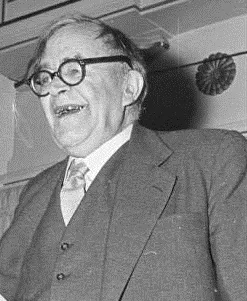
Thomas Merton: A Spiritual Guide in the Episcopal Church
Thomas Merton, born on January 31, 1915, in Prades, France, was a prolific writer, theologian, and mystic who played a significant role in the spirituality of the 20th century. Although he is primarily associated with the Roman Catholic Church, Merton's influence extended into the Episcopal Church (USA), where his writings and thoughts on spirituality and faith are embraced by many.
The Early Life of Thomas Merton
Merton was raised in a creative environment; his parents were both artists. His father, a painter, and his mother, a concert pianist, influenced Merton's appreciation for the arts from a young age. After moving to the United States, Merton pursued education at Columbia University, where he discovered a passion for literature and writing.
Monastic Life
In 1941, Merton joined the Trappist order at the Abbey of Gethsemani in Kentucky. His time in the monastery was pivotal, shaping his spiritual journey and writing career. Merton's monastic lifestyle emphasized contemplation and simplicity, principles that resonated deeply with his followers in the Episcopal Church and beyond.
Influence on the Episcopal Church
Despite his affiliation with the Roman Catholic Church, Merton's writings have reached a broader audience, including members of the Episcopal Church. His thoughts on the inner spiritual life, prayer, and social justice spoke to many Episcopalians seeking deeper meaning in their faith. Merton's contemplative approach to spirituality is reflected in the liturgy and practices of the Episcopal Church, which values both tradition and personal connection with God.
Key Writings and Themes
Merton authored over 70 books, essays, and poems, many of which focus on topics relevant to both Catholic and Episcopal traditions. Some of his notable works include:
- “The Seven Storey Mountain” - An autobiography that explores his early life, conversion to Catholicism, and entry into monastic life.
- “New Seeds of Contemplation” - A profound reflection on the life of prayer and the importance of solitude.
- “The Wisdom of the Desert” - Insights from early Christian monasticism that guide modern spiritual practices.
Through these writings, Merton emphasizes the importance of solitude, contemplation, and the interconnectedness of all faith traditions.
Merton and Social Justice
Beyond his spiritual teachings, Thomas Merton was also an advocate for social justice. He was deeply disturbed by issues such as war, racism, and materialism. Merton's commitment to peacemaking and social justice resonated with many Episcopal Church members, inspiring them to engage in active faith that promotes compassion and equity.
Legacy of Thomas Merton
Thomas Merton passed away on December 10, 1968, yet his legacy continues to inspire spiritual seekers of all backgrounds. Episcopal congregations often hold discussions, study groups, and retreats centered around Merton's works, examining how his insights can inform contemporary Christian life.
In conclusion, Thomas Merton's impact on the Episcopal Church and broader Christian communities is notable. His blend of monastic contemplative practices with a strong commitment to social justice offers a rich tapestry of spiritual guidance, making him a significant figure for those seeking deeper connections in their faith journey.






